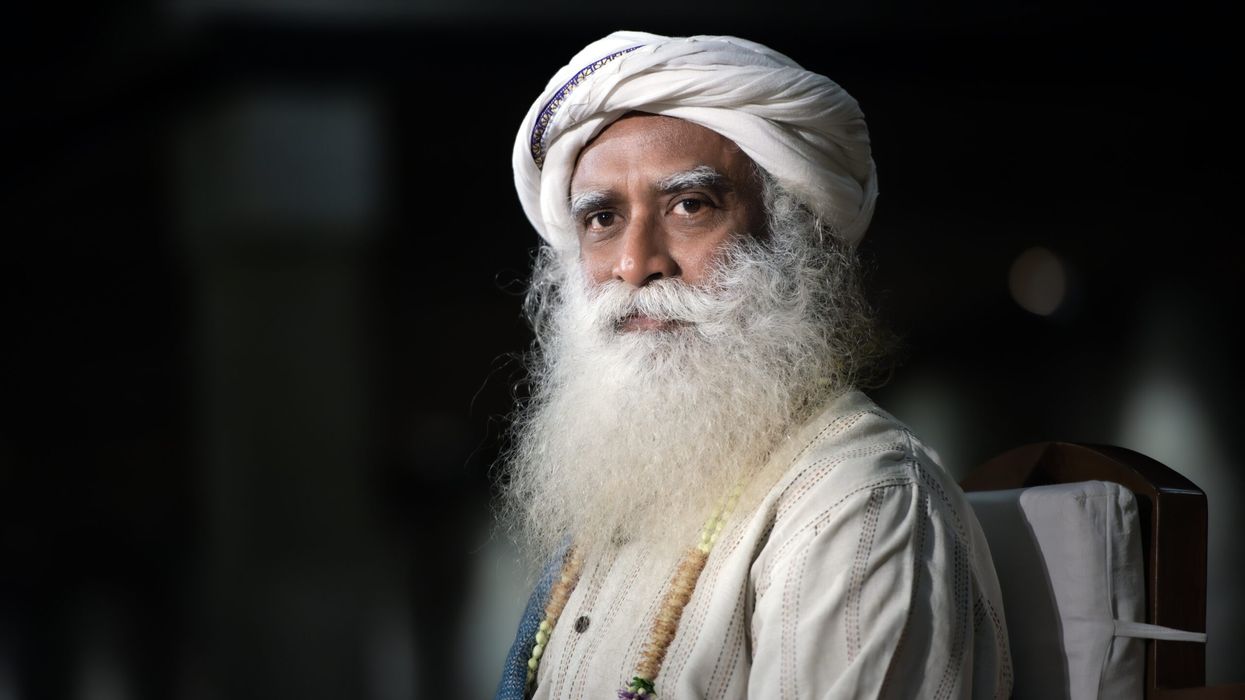THERE is really no such thing as creativity. Everything that human beings have created is only an imitation and modification of what is already there.
It doesn’t matter what kind of machine you create - the finest mechanical and electronic systems and the most complex chemical factories are there in your body. Or, if you look at creativity in terms of art, everything that you do is just a small imitation of nature.
Though all of us receive the same impressions, someone may assimilate them in a certain way, but all creativity is just an imitation of the larger creation. If you are a great imitator, we call you a great artist. It is not that it is of no value, but it is not coming from you. It is something that reflects from within you. If you are just receptive to life, if you become a reflection of it rather than becoming a mind and a jumble of thoughts, this is generally considered as creativity.
If you want to be creative in any field, all you have to do is observe in the deepest possible way. If you develop a sense of observing every little thing that you do and every little thing that is happening around you, it brings enormous vision as to what you can do with everything. Creativity does not necessarily mean that you invented something fantastic. Someone can be creative about how they sweep the floor.
If you develop the means to truly observe what is happening within you on all levels of who you are, then you will be enormously creative. But even if you just observe what is happening around you constantly, you will see there is always a way to do the same thing in a more innovative way.
So, if creativity has to happen, we have to develop a certain level of “undistortedness” in the mind. If you carry the baggage of life with you all the time, you cannot see anything the way it is.
In yoga, we always describe the mind as a mirror. A mirror is useful to you only if it is clean and plain. If it is undulating or has accumulated something, it does not show you things as they are.
The nature of a mirror is such that if you stand before it, it reflects you in full glory. If you leave, the mirror leaves you 100 per cent. It will not retain even a little residue of who you are. The next person who comes and stands in front of the mirror is also reflected in full glory. Even if a million people look at themselves in a mirror, they will not leave an iota of their quality in the mirror.
If you can keep your mind in such a way that exposure to life does not leave any residue on your mind, then you see things just the way they are. Then there is room to innovate and create in every aspect of your life.
With my own life, I am supposed to be a spiritual teacher, but if someone wants to build a building, they come to me. If someone wants to arrange flowers, they come to me. If they want to stitch clothes, they come to me - not because I have knowledge about these things. It is simply because I see everything the way it is, and when you see everything the way it is, how you want it to be becomes very simple. You develop a certain level of involvement.
If you don’t make any distinction as to what is important and not important or what you like and don’t like, you see everything just the way it is. But the moment you decide what is mine and not mine and what is important and not important, how will you get involved with that which you think is not yours?
Where there is no involvement, nothing functions well. When you are deeply involved with everything that you are in touch with right now, only then do you see everything clearly, the way it needs to be seen. When you see things in this manner, it is very easy to create anything because it is just a question of what material you have in your hands and how to put it together.
Ranked among the 50 most influential people in India, Sadhguru is a yogi, mystic, visionary and bestselling author. He was honoured with the Padma Vibhushan, India’s highest civilian award, in 2017 for exceptional and distinguished service.




